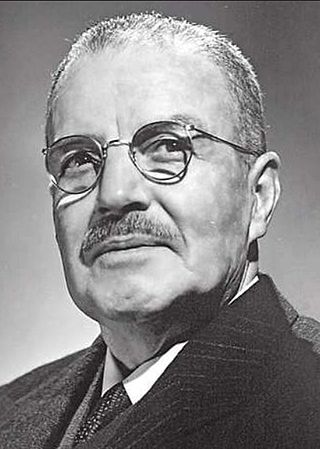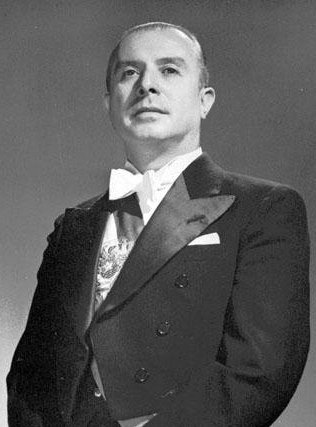The United Liberal Party (Spanish : Partido Liberal Unido, PLU) was a Chilean liberal political party which existed between 1930 and 1933.
It was the product of the union of Liberal Party, the Independent Liberal Party, Liberal Democratic Aliancist Party and the Liberal Democratic Unionist Party.
The supporters of Arturo Alessandri weren't included. It was a party related to Carlos Ibáñez del Campo. As time went by, its members split up to form other parties. With the downfall of Ibáñez all groups gathered up again, led by Alessandri to create the Liberal Party (October 1930) with a mutual party platform. In this process, the ULP merged into the LP during the VI Convention (October 1933) of the LP.
In the presidential elections of 1932 it presented the candidacy of Enrique Zañartu Prieto.
| Year of election (max number of parliament seats) | 1932 (142) |
| Number of parliament members | 6 |
| Votes obtained | 18.203 |
| Votes percentage | 5,6 |
The electoral results of 1930 aren't included.
The original version of this article draws heavily on the corresponding article in the Spanish-language Wikipedia, which was accessed in the version of June 7, 2007.

Juan Antonio Ríos Morales was a Chilean political figure who served as president of Chile from 1942 to 1946, during the height of World War II. He died in office.

General Carlos Ibáñez del Campo was a Chilean Army officer and political figure. He served as President twice, first between 1927 and 1931, and then from 1952 to 1958, serving for 10 years in office.

Gabriel Enrique González Videla was a Chilean politician and lawyer who served as the 24th president of Chile from 1946 to 1952. He had previously been a member of the Chamber of Deputies from 1930 to 1941 and senator for Tarapacá and Antofagasta from 1945 to 1946. A long-time member and leader in the Radical Party, he left the party in 1971 over its support for socialist president Salvador Allende. From 1973 until his death in 1980 he became an active collaborator and participant in the dictatorship of Augusto Pinochet, acting as vice president of the Council of State from 1976 onwards. As vice president of the council, he helped draft the current Chilean constitution of 1980.
This article gives an overview of liberal and radical parties in Chile. It is limited to liberal and radical parties with substantial support, mainly proved by having had a representation in parliament. The sign ⇒ means a reference to another party in that scheme. For inclusion in this scheme, parties do not necessarily need to have labeled themselves as a liberal party.

Arturo Fortunato Alessandri Palma was a Chilean political figure and reformer who served thrice as president of Chile, first from 1920 to 1924, then from March to October 1925, and finally from 1932 to 1938.
Presidential elections were held in Chile on 4 September 1946. The result was a victory for Gabriel González Videla of the Radical Party, who received 40% of the popular vote and 75% of the Congressional vote.

Marmaduke Grove Vallejo, was a Chilean Air Force officer, political figure and member of the Government Junta of the Socialist Republic of Chile in 1932.

The Conservative Party of Chile was one of the principal Chilean political parties since its foundation in 1836 until 1948, when it broke apart. In 1953 it reformed as the United Conservative Party and in 1966 joined with the Liberal Party to form the National Party. The Conservative Party was a right-wing party, originally created to be the clericalist, pro-Catholic Church group.
The Liberal Party was a Chilean political party created by a faction of pipiolos in 1849. After the conservative victory in the Chilean Civil War of 1829 the liberals became the principal opposition party to the Conservative Party. During the Liberal Party's early history one of its main goal was to create a new constitution to replace the Chilean Constitution of 1833. Rigged election helped to prevent the Liberal Party's presidential candidates to be elected until 1861, during that time elements of the liberal party made attempts to overthrow the government, these were the Revolution of 1851 and the Revolution of 1859. These failed insurrections led many liberals to emigrate, among them Benjamín Vicuña Mackenna. In 1863 a group of liberal split off to form the Radical Party which would hold power from 1938 to 1952. Originally an anticlericalist party that championed classical liberalism, the liberals later became a right-wing party.

The National Party was a Chilean political party formed in 1966 by the union of the United Conservative Party, the Liberal Party and the National Action.

The Radical Party was a Chilean political party. It was formed in 1863 in Copiapó by a split in the Liberal Party. Not coincidentally, it was formed shortly after the organization of the Grand Lodge of Chile, and it has maintained a close relationship with Chilean Freemasonry throughout its life. As such, it represented the anticlericalist position in Chilean politics, and was instrumental in producing the "theological reforms" in Chilean law in the early 1880s. These laws removed the cemeteries from the control of the Roman Catholic Church, established a civil registry of births and death in place of the previous recordkeeping of the church, and established a civil law of matrimony, which removed the determination of validity of marriages from the church. Prior to these laws, it was impossible for non-Catholics to contract marriage in Chile, and meant that any children they produced were illegitimate. Non-Catholics had also been barred from burial in Catholic cemeteries, which were virtually the only cemeteries in the country; instead, non-Catholics were buried in the beaches, and even on the Santa Lucia Hill in Santiago, which, in the 19th century, functioned as Santiago's dump.

The Parliamentary Era in Chile began in 1891, at the end of the Civil War, and spanned until 1925 and the establishment of the 1925 Constitution. Also called "pseudo-parliamentary" period or "Parliamentary Republic", this period was thus named because it established a quasi-parliamentary system based on the interpretation of the 1833 Constitution following the defeat of President José Manuel Balmaceda during the Civil War. As opposed to a "true parliamentary" system, the executive was not subject to the legislative power but checks and balances of executive over the legislature were weakened. The President remained the head of state but its powers and control of the government were reduced. The Parliamentary Republic lasted until the 1925 Constitution drafted by President Arturo Alessandri and his minister José Maza. The new Constitution created a presidential system, which lasted, with several modifications, until the 1973 coup d'état.
The Liberal Democratic Party, also called Balmacedists, was a liberal party in Chile. It was one of the main actors of the Chilean parliamentary system from 1891 to 1925.
The Independent Liberal Party or Doctrinary was an independent Chilean political party which was formed during Domingo Santa María's presidency by a group of parliament members, known as the doctrinaries, who opposed him. The party began with a manifesto published on 22 October 1885. They were members of some presidential cabinets from 1891 onwards.

The Presidential Republic is the period in the history of Chile spanning from the approval of the 1925 Constitution on 18 September 1925, under the government of Arturo Alessandri Palma, to the fall of the Popular Unity government headed by the President Salvador Allende on 11 September 1973. The period spans the same time as the "Development inwards" period in Chilean economic history.

The Radical Governments of Chile were in power during the Presidential Republic from 1938 to 1952.

The United Conservative Party was a right-wing Chilean political party founded in December 1953 after the merger of the Traditionalist Conservative Party and a faction of the Social Christian Conservative Party, issued from the Conservative Party. It supported for the 1958 presidential election the candidacy of Jorge Alessandri and participated, along with the Liberal Party and supporters of former president Carlos Ibáñez del Campo, in its government. In 1962, it participated in the Democratic Front of Chile center-right coalition which opposed the left-wings FRAP coalition and supported for the 1964 presidential election Eduardo Frei Montalva.

The Agrarian Labor Party was a Chilean political party supporting the candidacy of Carlos Ibáñez del Campo for the 1952 presidential election. Formed in 1945, it was dissolved in 1958.
The Socialist Radical Party was a radical political party of Chile that existed from 1931 to 1941.